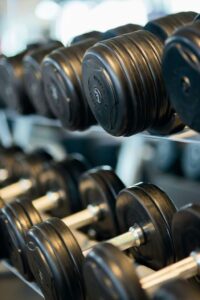Testosterone is a crucial hormone in men, responsible for muscle mass, bone density, and overall vitality. As men age, testosterone levels naturally decline, leading to decreased energy, muscle loss, and other health issues. However, there are natural ways to boost testosterone levels and maintain a healthy lifestyle.
Understanding Testosterone: Its Role and Importance in Health
Testosterone, a hormone primarily produced in the testicles in men and the ovaries and adrenal glands in women, plays a crucial role in various bodily functions. It is most commonly associated with male development and reproductive functions, but its influence extends far beyond. This blog explores the importance of testosterone, its functions, factors affecting its levels, and ways to maintain a healthy balance.
Functions of Testosterone
1. Development and Reproduction:
– Male Development: Testosterone is key in the development of male reproductive tissues, including the testes and prostate. It also promotes secondary sexual characteristics such as increased muscle and bone mass, and the growth of body hair.
– Sperm Production: It plays a critical role in the production of sperm, essential for male fertility.
2. Physical Health:
– Muscle Mass and Strength: Testosterone contributes to muscle growth and maintenance, which is why men typically have more muscle mass than women.
– Bone Density: It helps maintain bone density, reducing the risk of osteoporosis, particularly in older men.
– Fat Distribution: Testosterone influences body fat distribution, often leading to less fat storage around the abdomen compared to women.
– Mood Regulation: Testosterone levels impact mood and mental health. Low levels are associated with fatigue, depression, and irritability.
– Cognitive Function: It has been linked to cognitive functions, including memory and concentration.
Factors Affecting Testosterone Levels
Several factors can influence testosterone levels, including age, lifestyle, and overall health.
1. Age: Testosterone levels naturally decline with age. After the age of 30, levels typically decrease by about 1% per year in men.
2. Lifestyle:
– Diet: A balanced diet rich in vitamins and minerals supports healthy testosterone levels. Nutrients like zinc and vitamin D are particularly important.
– Exercise: Regular physical activity, especially strength training, can boost testosterone levels.
– Sleep: Quality sleep is crucial for hormone production, including testosterone.
3. Health Conditions: Conditions such as obesity, type 2 diabetes, and chronic illnesses can negatively impact testosterone production.
4. Stress: Chronic stress elevates cortisol levels, which can suppress testosterone production.
Maintaining Healthy Testosterone Levels
1. Balanced Diet: Include foods rich in zinc (like meat, shellfish, and legumes), vitamin D (like fatty fish, cheese, and egg yolks), and healthy fats (like avocados and nuts).
2. Regular Exercise: Engage in both aerobic and resistance training exercises to boost testosterone levels.
3. Quality Sleep: Aim for 7-9 hours of uninterrupted sleep per night to support hormone production.
4. Stress Management: Practice stress-reducing techniques such as meditation, deep breathing, and mindfulness.
5. Healthy Weight: Maintain a healthy weight through diet and exercise to support hormonal balance.
When to Seek Medical Advice
Low testosterone levels can lead to various health issues, including reduced sex drive, erectile dysfunction, decreased muscle mass, and mood changes. If you experience these symptoms, it is essential to consult a healthcare provider. They can perform tests to determine your testosterone levels and suggest appropriate treatments, which may include lifestyle changes, medication, or hormone replacement therapy.
Testosterone
Here are some effective methods:
1. Regular Exercise
– Strength Training: Lifting weights and resistance exercises are excellent for boosting testosterone. Focus on compound movements like squats, deadlifts, and bench presses.
– High-Intensity Interval Training (HIIT):Short, intense bursts of exercise followed by rest periods can increase testosterone levels more effectively than steady-state cardio.
2. Healthy Diet
– Protein-Rich Foods: Ensure adequate protein intake from lean meats, fish, eggs, and plant-based sources to support muscle repair and growth.
– Healthy Fats: Include healthy fats from sources like avocados, nuts, seeds, and olive oil to promote hormone production.
– Carbohydrates: Consume complex carbohydrates from whole grains, vegetables, and fruits to provide energy for intense workouts.
– Micronutrients: Ensure adequate intake of vitamins and minerals, especially zinc and vitamin D, which are crucial for testosterone production.
3. Quality Sleep
– 7-8 Hours of Sleep: Prioritize getting enough sleep, as poor sleep can lead to lower testosterone levels.
– Consistent Sleep Schedule: Maintain a regular sleep schedule, going to bed and waking up at the same time every day.
4. Stress Management
– Reduce Stress: High levels of stress increase cortisol, a hormone that can negatively impact testosterone. Practice stress-reducing activities like meditation, deep breathing, and yoga.
– Hobbies and Relaxation: Engage in activities you enjoy to keep stress levels low.
5. Maintain a Healthy Weight
– Balanced Diet and Exercise: Keeping a healthy weight through a balanced diet and regular exercise can prevent conditions like obesity, which is linked to lower testosterone levels.
6. Natural Supplements
– Ashwagandha:This apoptogenic herb is known to reduce stress and boost testosterone levels.
– **Fenugreek:** Some studies suggest fenugreek can increase testosterone and improve libido.
– **Ginger:** Regular consumption of ginger may enhance testosterone levels and improve overall health.
7. Avoid Estrogen-Like Compounds
– Limit Exposure to BPA and Parabens: These chemicals, found in some plastics and personal care products, can mimic estrogen in the body and reduce testosterone levels. Use BPA-free products and natural personal care items.
– Eat Organic: Choose organic produce when possible to reduce exposure to pesticides that may affect hormone levels.
8. Moderate Alcohol Consumption
Limit Alcohol Intake:
Excessive alcohol can lower testosterone levels. Try to keep alcohol consumption in moderation.
9. Sunlight and Vitamin D
– Sun Exposure: Spend time in the sun to boost vitamin D levels, which are linked to higher testosterone. Aim for 15-20 minutes of sun exposure several times a week.
– **Vitamin D Supplements:** If sun exposure is limited, consider taking a vitamin D supplement.
10. Stay Hydrated
– Drink Water: Staying hydrated supports overall health and bodily functions, including hormone production.
Increasing testosterone levels naturally involves a combination of regular exercise, a balanced diet, quality sleep, stress management, and avoiding harmful substances. By adopting these healthy lifestyle practices, men can enhance their testosterone levels, improve overall well-being, and maintain vitality as they age. Remember, consistency is key, and small changes can lead to significant improvements in hormone health.



